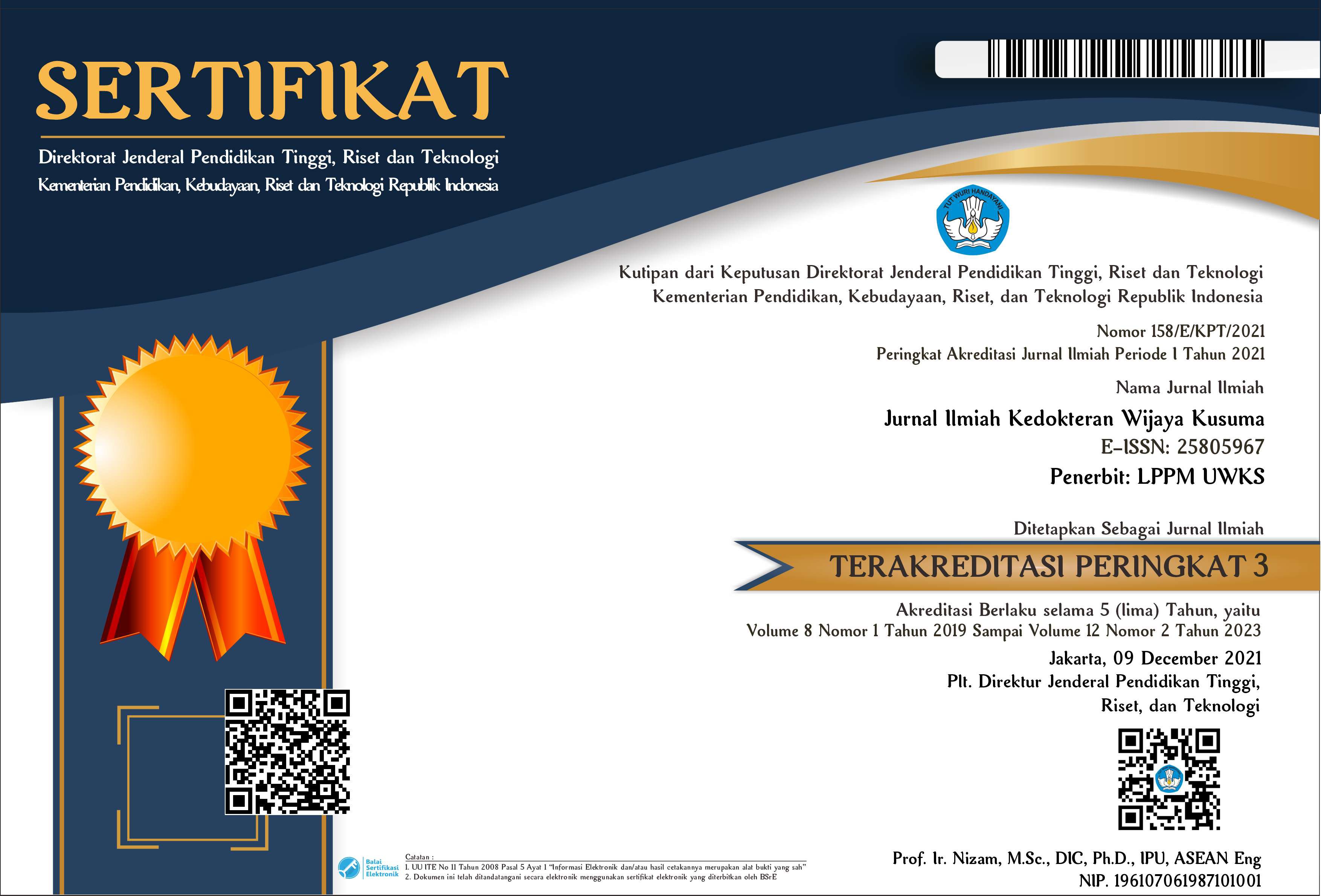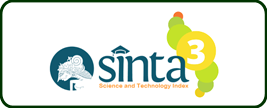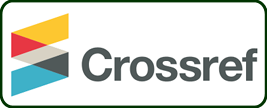The Role Of Zinc Sulphate and Omega 3 On The Improvement Of Weight and Speed Conversion Conversion on Tuberculosis Parent Patients at Surabaya Park Hospital, 2015
DOI:
https://doi.org/10.30742/jikw.v7i1.313Keywords:
pulmonary tuberculosis, Zinc Sulphate, Omega 3, BTA testAbstract
Background: Tuberculosis (TB) is an infectious disease caused by Mycobacterium tuberculosis, can affect almost all organs of the body with the most locations in the lungs. Immunity and high nutrients such as vitamin C, zinc and other antioxidants have shown good effects for infections, including tuberculosis. One effort to help accelerate sputum conversion of people with pulmonary tuberculosis is by supplementation of Zinc Sulphate and Omega 3.
Objective: Analyze the role of Zinc Sulphate and Omega 3 on sputum conversion acceleration in patients with pulmonary tuberculosis at Surabaya Paru Hospital 2015.
Method: This research use Randomized Pre Post Test Post Control Group Design design. In patients with pulmonary tuberculosis with Zinc Sulphate and Omega 3 in the treatment and placebo group in the control group. A sample of 20 patients consisting of 10 treatment patients and 10 control patients. Statistical test using paired T-Test, Friedman test and Mann whitney.
Results: Friedman test showed that in the treatment group showed significant difference in the number of BTA between before and after supplementation (p=0,001), while in the control group significance of 0.141. Mann-Whitney test showed no significant difference in the amount of reduction of BTA between the treatment group and the control group (p = 0.080). This means that statistically does not show any significant difference.
Conclusions: Zinc Sulphate and Omega 3 play a role in accelerating sputum smear conversion of respondents. The results of smear test in pulmonary TB patients with Zinc Sulphate and Omega 3 supplementation showed positive results
References
Adriani M, Wirjatmadi B,2012. Pengantar Gizi Masyarakat. Edisi 1. Kencana Prenada Media Group, Jakarta.
Amare B, Moges B, Fantahun B, Tafess K, WoldeyohannesD, Yismaw G, et al, 2012. Micronutrient Levels and Nutritional Status of School Children Living In Northwest Ethiopia. Nutritional Journal.11(108): 1-8
Anindita, Putri, 2012. Hubungan Tingkat Pendidikan Ibu, Pendapatan Keluarga, Kecukupan Protein & Zinc Dengan Stunting (Pendek) Pada Balita Usia 6-35 Bulan Di Kecamatan Tembalang Kota Semarang. Jurnal Kesehatan Masyarakat. 1(2): 617-626
Barasi Mary E, 2007. At a Glance Ilmu Gizi. Penerbit Erlangga, Jakarta. Hal: 32-37
Depkes. RI, 2011. Pedoman Nasional Penanggulangan Tuberculosis. Edisi 2. Departemen Kesehatan, Jakarta
Dwijayanthi L, 2011. Ilmu Gizi Menjadi Sangat Mudah. Edisi 2. EGC, Jakarta. Hal: 317.
Flynn JL, Chan J, Lin PL,2011. Macrophages and Control of Granulomatous Inflammation in Tuberculosis. Mucosal Immunol. 4(3): 271-278
Gibson RS, 2005. Principles Of Nutritional Assessment. 2nd ed.Oxford University Press, New York.
Lombardo CC, Swart R, Visser ME, 2012. The Nutritional Status of Patients With Tuberculosis In Comparison with Tuberculosis-free Contacts In Delft, Western Cape. S Afr J Clin Nutr. 25(4): 1-6
Riskesdas, 2010. Hasil Laporan Riset Kesehatan Dasar. Jakarta.
WHO, 1997. Guidelines for the Management of Drug-Resistant Tuberculosis. (Crofton J, Chaulet P, Maher D, Grosset J, Harris W, Horne N, Iseman M and Watt B eds), 2nd ed. Genewa.
Winarti Sri,2010. Makanan Fungsional. Edisi 1. Graha Ilmu, Yogyakarta. Hal:88 -97
Yunanto A, Setiawan B, Suhatono E. 2009. Radikal Bebas pada Penyakit Paru. Dalam: Kapita Selekta Biokimia Peran Peran Radikal Bebas Pada Intoksikasi dan Patobiologi Penyakit. Banjarmasin: Pustaka Benua. Hal 45-56.
Downloads
Additional Files
Published
Issue
Section
License
The journal operates an Open Access policy under a Creative Commons Attribution-NonCommercial 4.0 International License. Author continues to retain the copyright if the article is published in this journal. The publisher will only need publishing rights. (CC-BY-NC 4.0)

















